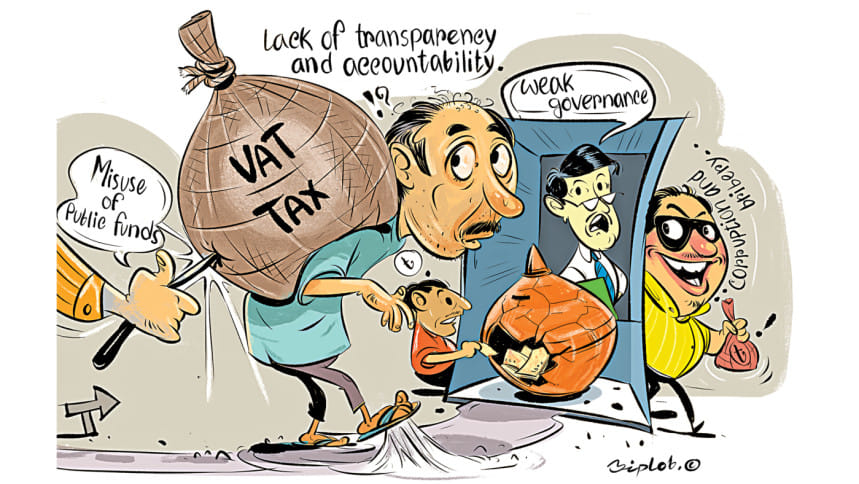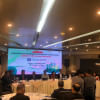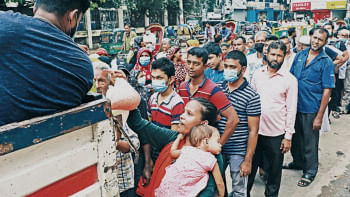Value for taxpayers’ money: Why it matters

If you visit the Dhaka Medical College and Hospital (DMCH), you will find it difficult to make your way through the crowded corridors between the wards. Patients lie on narrow, makeshift beds along both sides, while doctors, hospital staff, visitors, and treatment seekers shuffle through the chaos.
A glance into any of the wards would reveal a packed space with no vacant seats, and many patients forced to lie on the floors.
This overcrowding is not unique to DMCH. Public hospitals across the country are filled to capacity, despite persistent complaints of poor services, bribe-seeking by hospital staff, and inadequate essential medicines and diagnostic services.
The situation is not confined to hospitals alone. Public services in other areas such as footpaths and education also fall short, with corruption and inefficiency frustrating taxpayers. Many wonder why they should pay taxes when people do not get adequate services, bribes are commonplace, and public funds are wasted due to corruption and lack of accountability.
According to the "White Paper on the State of the Bangladesh Economy" prepared by the interim government, nearly 40 percent of all government expenditures are believed to be misappropriated.
"People do not want to see their hard-earned money misused," said Professor AK Enamul Haque, director general of the Bangladesh Institute of Development Studies (BIDS).
He said that taxpayers do not directly benefit from the payment of taxes.
Tax is used to create public goods and services, but transparency and accountability are important in spending public money, said Haque. "For this, spending must be based on a proper analysis of costs and benefits."
The issue is compounded by projects undertaken without adequate cost-benefit analysis, often biased by political reasons.
The white paper, prepared by a team of economists and policy analysts and led by Centre for Policy Dialogue (CPD) Distinguished Fellow Debapriya Bhattacharya, cited numerous examples of previous projects initiated simply as part of election campaigns.
Ceremonies such as laying foundation stones or ribbon-cutting were used to declare projects open, even when they were far from ready for public use.
"A stark example of this is Terminal-3 at Dhaka airport," the paper said, adding that many projects proceed without adequate analysis, ultimately becoming unviable and placing a significant burden on the budget.
A lack of public input in project planning is another factor, according to the paper.
For instance, the Karnaphuli Tunnel in Chattogram is technically advanced, but its location has not been well received by residents who remain unaware of the project's full scope.
"To the community, it appears to serve no purpose for either side of the Karnaphuli river, resulting in perceptions of it as a waste of public funds," the paper said.
"Similarly, Hi-Tech Parks in Sylhet and Rajshahi offer no tangible benefits to local residents yet. Such public sentiment can be detrimental to project proponents, as communities struggle to appreciate initiatives that could potentially benefit them."
To address this issue, many countries have established mandatory public consultation processes during project feasibility studies, and this practice should be adopted for all development projects, said the white paper.
Mohammad Muslim Chowdhury, former comptroller and auditor general (CAG) of Bangladesh, said the job of a state is to ensure services to its citizens through the executive branch.
Over the past 53 years since independence, Bangladesh has suffered from democratic deficits as well as governance issues.
"This has created a trust deficit among taxpayers," he said.
He said the CAG alone cannot ensure accountability in the use of public money if overall governance remains weak, and unless the elected representatives in parliament hold the executive branch to account to ensure proper use of taxpayers' money.
Central planning is another reason.
Chowdhury pointed out that budgetary decisions are often made centrally, with little consideration for grassroots needs.
"In many cases, we see culverts built where there is no need for them," he said. The centralised decision-making process results in funds being misallocated and public money wasted.
The disbursement of public funds is further undermined by intermediaries, Chowdhury said. "Funds are siphoned off by middlemen, with the intended beneficiaries receiving little to no benefit."
Chowdhury, also a former finance secretary, recommended greater use of technology to modernise services and prevent such leakages.
"The upcoming budget offers a chance for the government to reallocate resources. Stop spending on physical infrastructure and focus on social sectors and social protection to benefit more people," he said.
"We have enough roads and buildings. So we do not need new ones. All we need is quality teachers to ensure quality education and more public healthcare facilities," said Chowdhury.
Ashraf Ahmed, former president of the Dhaka Chamber of Commerce & Industry (DCCI), said taxes are the price for civilisation.
"No taxes mean no roads, schools, emergency services, or legal frameworks -- all of which exist because we fund them collectively," he said.
"Imagine a world without fire brigades or roads, where your house burns with none to put out the blaze. That is the reality we risk if taxes vanish."
However, he acknowledged that government services often fall short, frequently because insufficient tax revenues limit investment in capacity building.
"The state -- and the taxes that fund it -- are the very systems shielding us from disorder. As citizens, we must demand efficiency, transparency, and accountability. We do not want to pay intermediaries for what we have already funded collectively," he said.
Dr Iftekharuzzaman, executive director of Transparency International Bangladesh (TIB), said taxpayers' reluctance to pay tax is rooted in a lack of trust due to the harassment and corruption they experience in accessing public services funded by taxpayers' money.
"Some 77 percent of people who are forced to pay bribes for public services do so because of their experience that, without paying bribes, public services are unavailable," he said, citing a TIB study.
Harassment and bribery by a section of tax officials is another key reason, he said.
"Honest taxpayers who follow the due process experience a hellish situation, while those who evade tax through collusive forgery and corruption enjoy a heaven, as evidenced by endless stories of the shameless accumulation of income and wealth by tax officials at various levels. On the other hand, to cope with the challenge of one of the world's lowest tax-GDP ratios, reliance on indirect taxes has been normalised, which is discriminatory for lower-income groups," he said.
As the lack of trust is the main issue, to encourage taxpayers, corruption and irregularities must be controlled and prevented, he said.
"All public services must be fully automated. Similarly, the tax administration and services of the NBR must be brought under end-to-end automation. And not least, the corrupt officials must be brought to exemplary accountability, without which the rituals of expanding the tax net will not deliver the desired result."

 For all latest news, follow The Daily Star's Google News channel.
For all latest news, follow The Daily Star's Google News channel. 








Comments